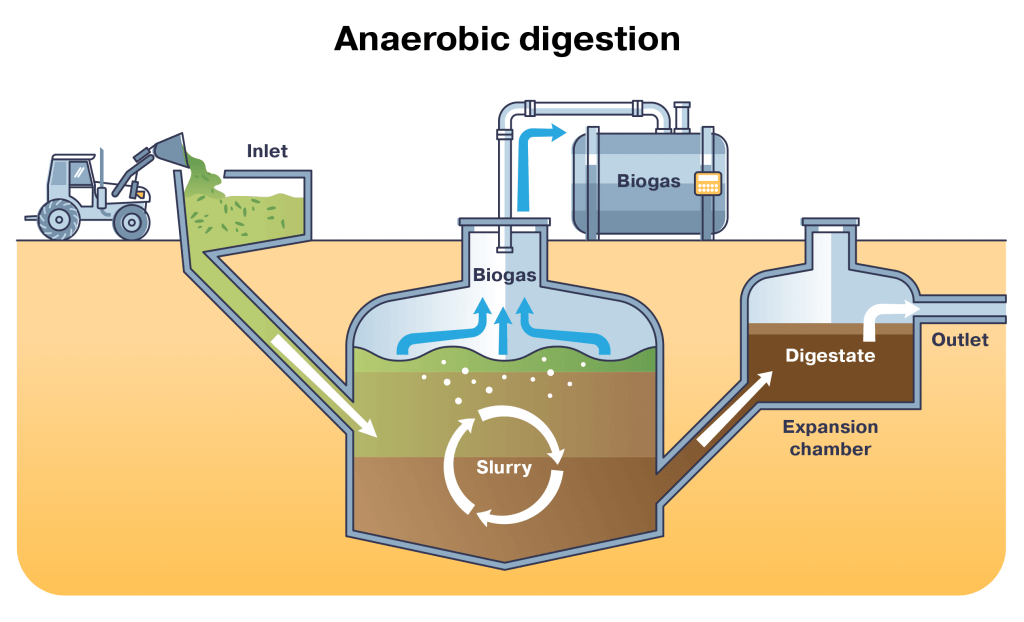
Pan-Atlantic University partners CESEL, the University of Lincoln on biogas production
Sopuruchi Onwuka
Nigeria’s leading innovative and enterprise oriented institution, Pan-Atlantic University (PAU), has entered collaboration with leading foreign institutions to develop and implement farm based advanced biodigesters in the country.

According to a statement from the PAU, formerly Lagos Business School, the project will deploy advanced technology to harness farm waste for production of biogas at a large-scale poultry farm in Aikun, Osun State, Nigeria.
The Oracle Today reports that biodigester is a system that allows bacterial organisms to assist in decomposition of plant residues, animal manure, uneaten food and other types of organic waste in an anaerobic process enabled by absence of oxygen.
The biodigester is controlled to produce biogas including methane (CH4) and carbon dioxide (CO2) and natural fertilizers in the process of getting rid of the organic waste. The produced biogas can be used for cooking, generating electricity and fueling vehicles.
The partnership comes at tome Nigeria ins driving policies and programmes to diversify transportation fuels, deepen cooking gas penetration of displace dirty kitchen fuels and fueling off-grid power generation for homes and businesses.
The biodigester project is also expected to boost Nigeria’s renewable fuel profile as players and economies around the world shift funding from dirty fossil fuel products to cleaners and more sustainable energy forms.
Biodigester also produces a liquid by-product, digestate, which can be used as a natural fertilizer in agriculture.
The partnership brings PAU to collaboration with CESEL and the University of Lincoln, United Kingdom, on the groundbreaking project funded by a £219,000 Innovate UK grant.
By converting poultry waste into renewable biogas, the project aims to address Nigeria’s energy challenges while promoting environmental sustainability as the innovative biodigesters would now “replace traditional, unsystematic models, significantly improving efficiency, safety, and the overall impact of biogas production,” PAU declared.
The Chief Executive Officer of CESEL, Dr. Patrick Tolani, explained that, “this grant provides a unique opportunity to showcase a pathway toward environmental sustainability in Nigeria’s agricultural and renewable energy sectors.”
“With Nigeria’s potential to generate 25,000 megawatts of electricity from biogas, as per the Nigeria National Petroleum Company Limited (NNPCL), this project can contribute significantly to addressing the nation’s energy deficit and fostering economic growth,” he added.
Associate Professor (Reader) in Energy Systems & Policy at School of Science and Technology at Pan-Atlantic University, Dr. Norbert Edomah, pointed at the project’s potential to empower local communities, promote sustainable energy practices, and address energy challenges in rural areas.
“Thanks to the support from Innovate UK, this knowledge transfer partnership aims at developing local competencies and innovative solutions that addresses local energy needs through production of biogas from agricultural and animal waste for diverse use in the farms, including electricity generation,” he stated.
Pan-Atlantic University will serve as the initial site for prototyping the biodigester, with plans to scale up the technology at the Osun State farm. Real-time monitoring sensors will be integrated to optimize performance and set new standards for energy innovation in Nigeria.
This partnership between Pan-Atlantic University, CESEL, and the University of Lincoln demonstrates a commitment to sustainable development and technological advancement. By driving innovation in renewable energy, this project will contribute to a greener and more prosperous future for Nigeria.
The Oracle Today reports that Pan-Atlantic University is a private, non-profit educational institution located in Lekki, Lagos State, Nigeria. It’s known for its strong focus on practical education and its commitment to producing well-rounded graduates.



